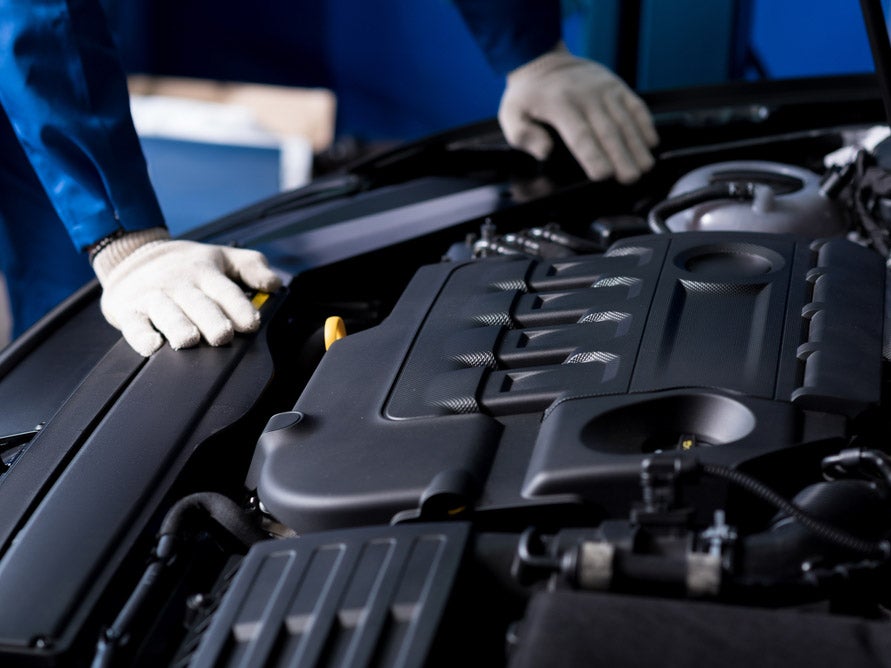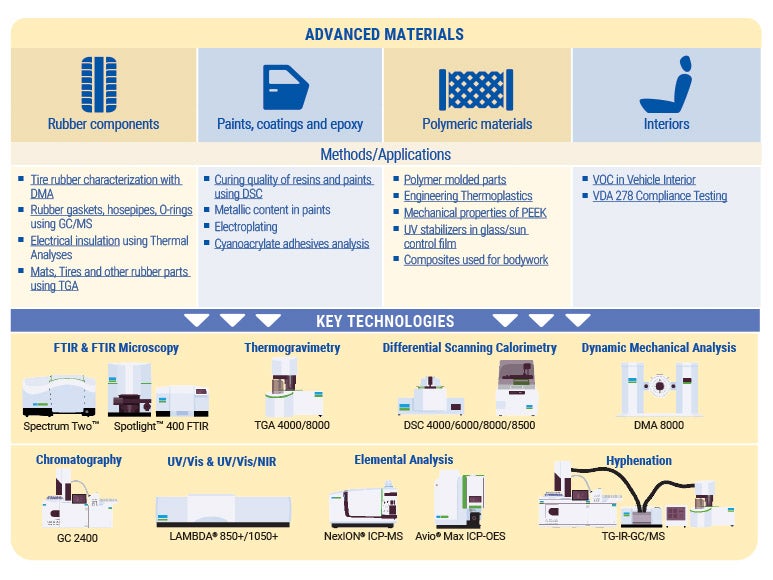
Development and integration of advanced materials are enhancing vehicle design and manufacturing capabilities. These materials are pivotal in boosting vehicle performance, safety, fuel efficiency, and sustainability.
Uses of advanced materials in automotives range from tyre rubber to polymer cables, elastomers, and other silicone rubber engine components, as well as for car interiors and seating. However, all these materials must undergo robust testing processes to ensure that they can withstand the demands endured over the long term.
Lightweight automotive materials to improve fuel efficiency
Lightweight alternatives such as carbon fibre-reinforced composites and advanced polymers are replacing traditional metals such as steel and aluminium in some vehicle components. Not only do these materials offer improved strength-to-weight ratio, reducing the overall weight of vehicles, but lighter cars also require less energy to travel, resulting in improved fuel efficiency and lower emissions for traditional vehicles, and improved battery performance and longevity for battery-powered vehicles.
While steel remains an essential material in the industry, recent innovations have led to the development of high-strength steel (HSS) alloys. These alloys are solid and lightweight, making them ideal for reinforcing crucial parts of a vehicle’s structure while reducing overall weight. Similarly, aluminium has been a crucial material for decades. Yet advanced aluminium alloy technology has made it even increased in appeal for automotive manufacturers by offering improved strength, corrosion resistance, and durability.
Advanced materials testing for vehicles
The application of the advanced material in the car will dictate what testing requirements must be in place. Some materials will need to be tested for performance under heat and pressure, others for resistance to wear and friction. This also extends to off-gassing safety assessments, responsible for the ‘new car smell’, for plastics in interiors.
Polybutadiene rubbers are used for applications where the ability to deform and return to the original shape is of vital importance, such as for car tyres, wiper blades, and gaskets. Dynamic mechanical analysis (DMA) is highly effective in characterising the material and assessing the performance of the final product to ensure optimal compound properties.
PerkinElmer is a specialist provider of industrial testing solutions for advanced materials. The company works with manufacturers investigating advanced materials by providing analytical instrumentation, expertise, and support services to advance research. The company’s DMA 8000 solution performs thermal analysis of advanced materials, monitoring any changes in rheological properties within dynamic conditions, strictly controlling temperature, time, frequency, stress, atmosphere, or a combination of these parameters.

Other solutions include the TG-IR for analysis of polymer cables used in the automotive industry, which may utilise DMA. PerkinElmer also provides thermogravimetric analysers (TGA), Fourier-transform infrared spectroscopy (FTIR) instruments, and ultraviolet/visible/near-infrared spectroscopy (UV/VIS/NIR) equipment for in-depth testing of advanced materials. Meanwhile, PerkinElmer’s fast-scanning HyperDSC can conduct differential scanning calorimetry (DSC) for further thermal analysis.
The company’s DSC and FT-IR instruments are also used for paints, coatings, and epoxy, in addition to coupled plasma mass spectrometry (ICP-MS) for measuring inorganic contaminants, such as PerkinElmer’s NexION 2200 (this has been launched recently), the most versatile ICP-MS on the market.
Furthermore, with 3D printing using specialised additive materials surging in popularity in the automotive industry, parts are increasingly customised and prototypes can be created quickly.
With such experimental manufacturing techniques, these additive materials must be rigorously tested, including monitoring the chemical nature of evolved gases during 3D printing.
Hyphenation of TGA with FTIR, MS, and GC-MS instruments allows manufacturers to better understand evolved gases. PerkinElmer’s TGA 8000 provides complete control over the sample environment and delivers high throughput and reliability, with the option to work autonomously if required.
To learn more about PerkinElmer’s testing capabilities for advanced automotive materials, download the studies below.
